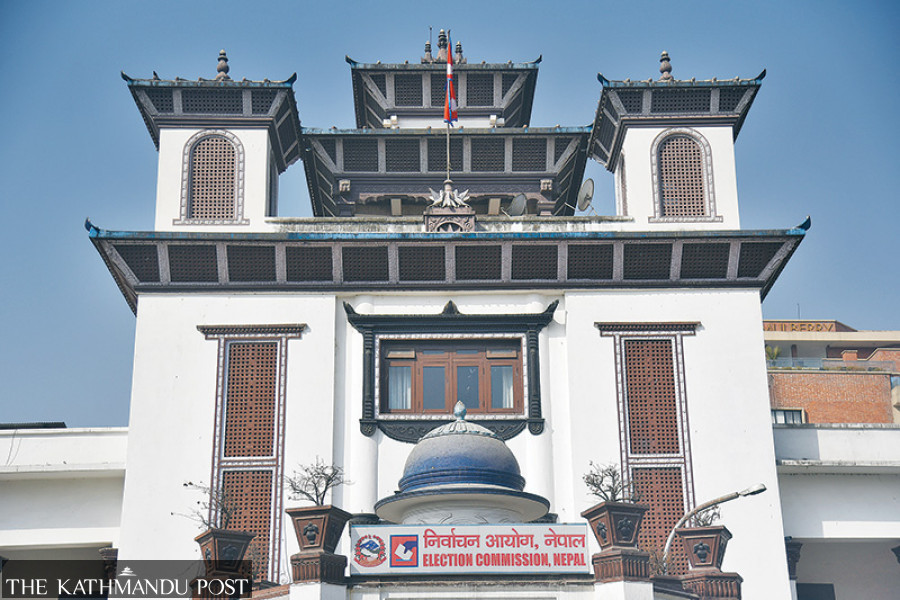Politics
Campaign overspending an issue of concern amid talks of new elections
A total of Rs131.3 billion was spent in the last elections, according to Election Observation Committee.
Binod Ghimire
As many as 283 local governments will complete their five-year term in May next year. As per the schedule, there are seven months before the next vote to elect the leadership at local level. The elections for the local governments were completed in September 2017.
Likewise, there is little over a year for the country to elect its new provincial assemblies and federal parliament.
Reports on election expenditures show billions of rupees were spent in the previous polls that elected three tiers of government for the first time in the country’s history.
A study carried out by the Election Observation Committee, Nepal showed that elections are becoming a costly affair as the government, political parties and candidates spent an estimated Rs131.63 billion in total in the previous elections.
The report revealed that the government spent Rs34.72 billion while the candidates and their supporters spent as high as Rs96.91 billion in total. If the figures from the committee are anything to go by, per voter cost during the elections of the three tiers of governments stood at Rs8,492. There were a total of 15,427,938 eligible voters in the 2017 elections.
Another study report by the committee showed Rs69.42 billion was spent in the three phases of local elections alone with per voter cost amounting to Rs4,923. The increasing spending in the elections was criticised when the reports were released four years back. As the new elections draw close, experts suggest that the country should adopt policies to reduce spending.
Surya Nath Upadhyay, a former chief commissioner at the Commission for Investigation of Abuse of Authority, said poll spendings cannot be checked unless the Election Commission comes strongly against it.
He said the extravagance in the election publicity can be controlled by allotting certain time in the state owned media based on the strength of the parties for their campaigning while stopping other kinds of publicity.
As the parties spend huge amounts of money in rallies, Upadhyay says there should be strong conditions for permission before holding election rallies, such as capping the number of participants.
“The election funding to the parties by donors should also be in the Election Commission’s notice,” he said. “The commission should set up a separate entity to monitor election spending.”
The Election Commission Act, 2017 authorises the commission to disqualify the candidate if they breach the ceiling to spend in the elections.
The commission imposes a fine if any candidate spends more than the prescribed amount. If the candidate doesn't pay the set fines, section 26 (1) of the Act authorises the commission to disqualify him or her from participating in any elections for up to six years.
The commission also has the authority to disqualify an elected candidate for failing to pay such fines, as per Section 26 (5) of the Act.
Observers say it is difficult to check overspending in elections unless the political parties support the idea and the Election Commission is bold enough to act independently.
Shree Hari Aryal, former chairperson of Transparency International, Nepal, said screening should be done right from the selection of candidates in order to control overspending.
“Spending will be automatically controlled if honest candidates are selected,” Aryal told the Post. “There have to be strict provisions not to allow tainted people to contest the elections.”
Aryal said the existing Political Parties Act, 2017 and the Election Commission Act need to be amended to incorporate the provisions for candidate screening, property disclosure of candidates, and holding the respective parties answerable to their candidates.
Candidates in any elections are currently exempted from disclosing their property details.
Experts on election affairs suggest creating a pool fund and providing money to the parties and candidates based on their vote share in the previous election.
In 2003-04, the finance minister at the time, Prakash Chandra Lohani, in the fiscal budget had introduced state funding for political parties. As per his proposal, the government would provide grants to the national political parties two months before the elections based on the votes they received in the recent elections for the House of Representatives.
As per the proposal, each vote would account for Rs20. The proposal also allowed the parties to raise money via donations from enterprises, provided the source of such donations are transparent.
However, the plan was never implemented.
Dolakh Bahadur Gurung, a former commissioner at the Election Commission, said creating a pool fund by the government and a basket fund from the private and other donors would help check the spending during elections and also trace the source of money spent in election campaigns.
He said while the government’s fund has the money from the state coffers, there has to be a separate basket fund where private donors put their money.
The money collected in the basket fund, Gurung said, should be distributed among the parties based on their size and strength from the previous elections.
“The private sector, I believe, would be ready to put the money in the basket if the government announces schemes like tax exemption for their participation,” he told the Post. “This will not just control the spending but also make the funding to the political parties transparent.”




 13.12°C Kathmandu
13.12°C Kathmandu














